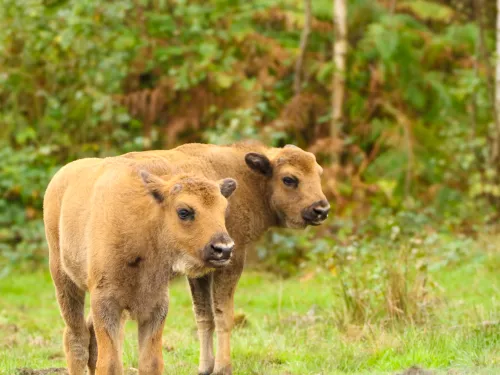
Welcome “two” the herd
Ground-breaking wilding project welcomes the birth of two female bison calves
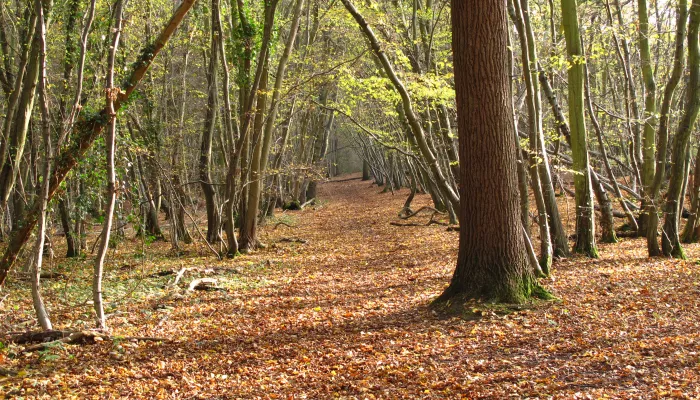
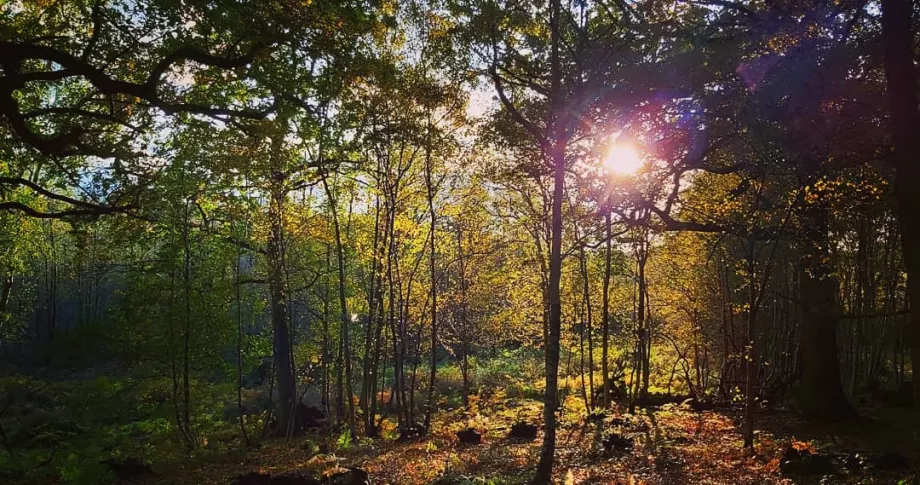
Blean Woods. Vicky Aitkenhead
Large parts of Seasalter Levels, to the west of Whitstable, have been suffered from a lack of appropriate management for decades. Since 2007, the Seasalter Partnership, including RSPB, Natural England, Canterbury City Council, Environment Agency and Swale Borough Council, has worked hard to gain control of the site and develop a nature reserve that benefits wildlife and local people.
However, whilst the area managed for wildlife has increased since 2007, a large part remains in poor condition. This funding will enable the partnership to deliver large scale restoration of 228ha of wetland and finish the job. This will be done by installing new wetland features, including banks, sluices and pools, and by introducing grazing by cattle. When complete this will transform Seasalter into a wetland nature reserve for many rare bird species such as lapwing, redshank and curlew plus other wildlife, such as water voles, the shrill carder bee and rare dragonflies.
Wraik Hill Local Nature Reserve, which is managed by Canterbury City Council in partnership with Kent Wildlife Trust, is a valuable green corridor and wildlife site providing a direct link between Seasalter and the Blean. The individual landholdings have been acquired by Canterbury City Council over the past 30 years to create the reserve which is comprised of scrub, ponds and species-rich grassland, a rare habitat combination in Kent. The site benefits from a Kent Wildlife Trust Canterbury Area Warden. The site requires new fences, pond clearance, accessibility improvements, interpretation and scrub removal to reach its full potential. It already holds significant interest with species such as nightingale and green-winged orchids found there.
The funding will also be used to connect more people to nature through improving visitor access. This will include new access gates and interpretation at Wraik Hill and new bridges in the Blean to allow people to cross streams. It will also create a diverse task force of over 150 local volunteers and 4.5 FTE new paid jobs. In particular, the project will encourage participation from young people including those in the local community from a multitude of diverse ethnic backgrounds, of whom there are a higher representation in the local population than in the wider county.
Chloe Sadler, Head of Wilder Landscapes at Kent Wildlife Trust, said: “We are delighted by the news that this project has been successful in securing investment from the Green Recovery Challenge Fund. This funding will enable transformative action to restore nature and enhance climate resilience across two of Kent’s iconic landscapes and an important ecological corridor between. It will also prove hugely valuable in strengthening the connection of local communities with their local wild spaces, and by cementing partnerships working collectively to deliver meaningful nature-based solutions to the nature and climate crises, such as through Wilder Blean.”
Alan Johnson, RSPB Area Manager, Kent & Essex, said: “We are all absolutely delighted to have received this funding and with it be able to restore nature across a large part of north Kent. It is these landscape scale projects that are crucial if we are going to deliver the UK’s ambitions for 30% of land protected by 2030. We are also delighted that we will be able to give more people from diverse backgrounds the opportunity to both get involved with the work and enjoy the results.”
Cllr Ashley Clark, Canterbury City Council's Lead Councillor for Open Spaces, said: "While most of us are constantly reminded of the continual encroachment of development, it is most reassuring that we are able to both protect and enhance extensive tracts of land as wildlife havens and pools of diversity. As we have witnessed in both lockdowns, close contact with the natural world is vital to our physical and mental wellbeing and if we look after nature it, in turn, will look after us. This is absolutely splendid news and we commend our lead officer Anna Stevens and the RSPB for their diligence and determination especially as grants like this are subject to enormous competition."

Ground-breaking wilding project welcomes the birth of two female bison calves
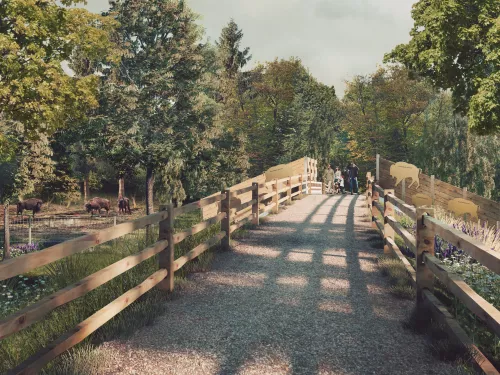
The bridges will allow the UK’s only wild bison herd access to 200 hectares of West Blean and Thornden Woods in Canterbury.
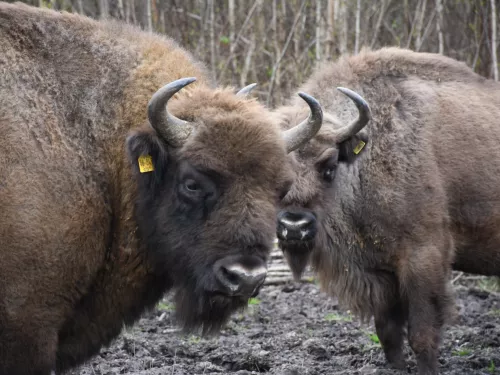
Since 2022, the UK has sworn in four new prime ministers, the interest rate has risen from 0.25% to 5.25%, and, as of the 18th July, bison have been in the Blean for two whole years.